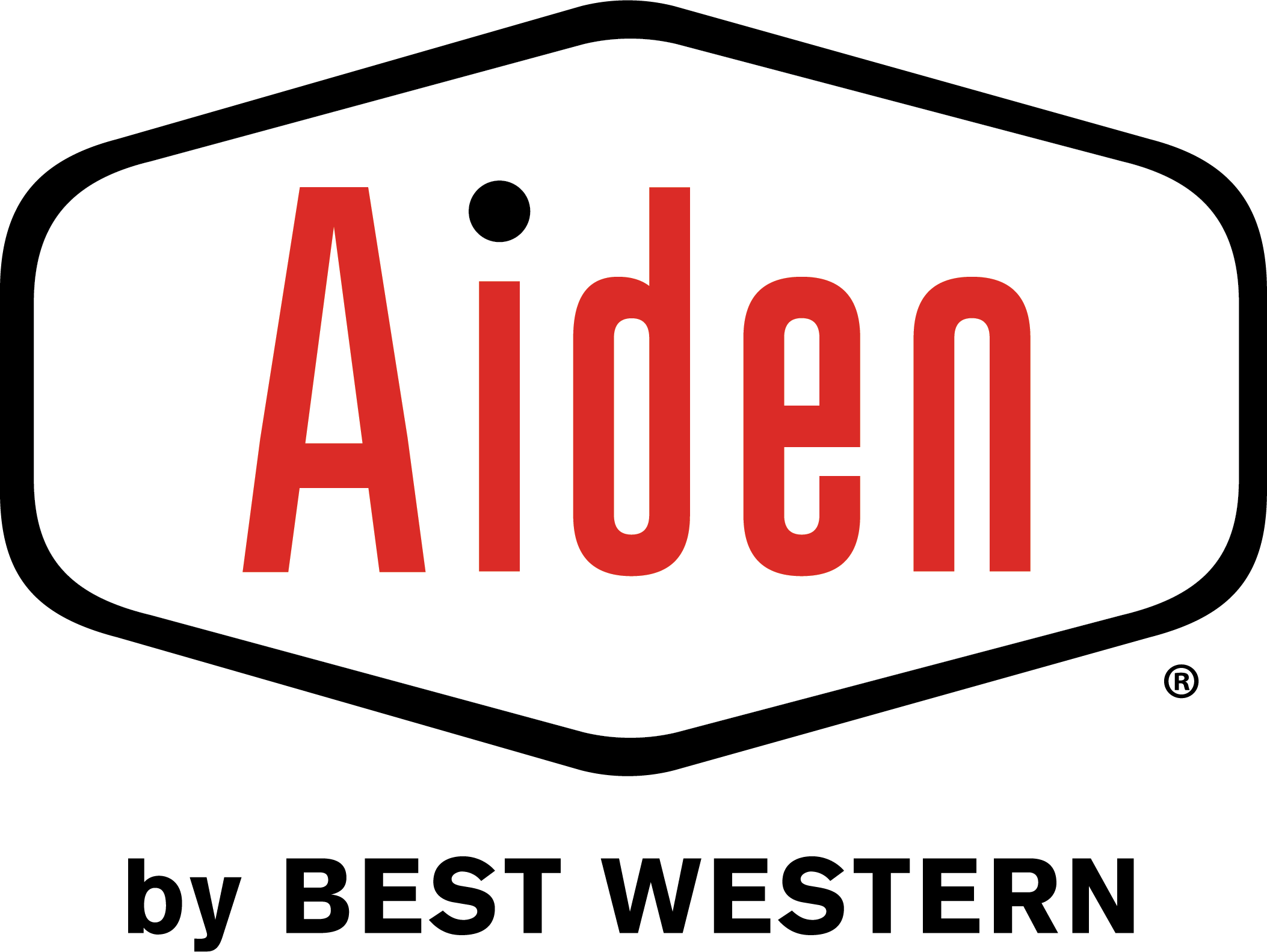Meet your host: Nicolas Chen
The mind behind the hotel designed for travellers by travellers, owner Nicolas Chen didn’t start out wanting to create and run a hotel. After studying and establishing a successful career as a lawyer in Sydney, he soon realised his true passion and calling, and decided to chase his dream.
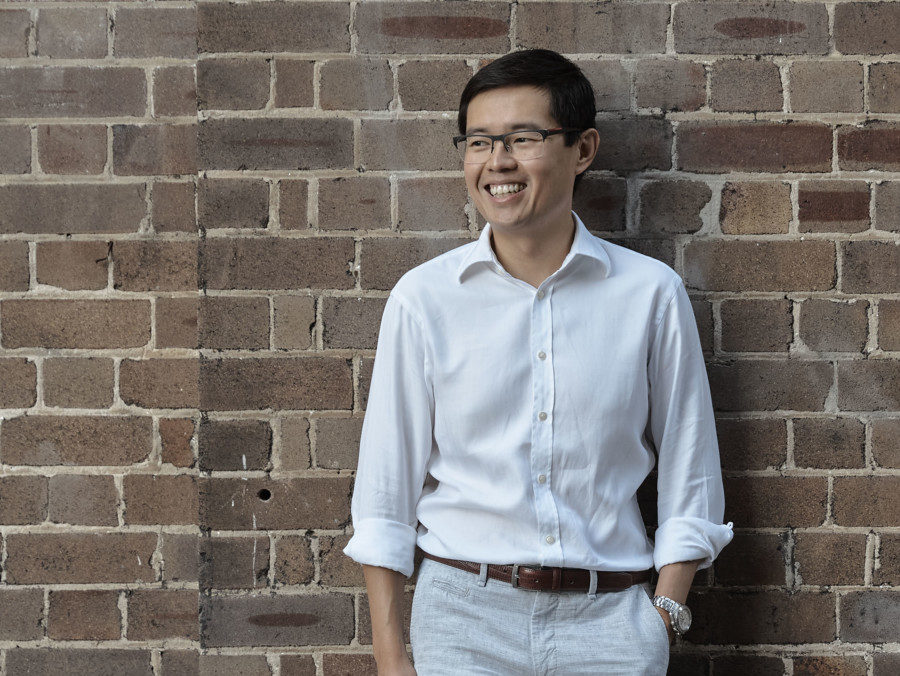
Sydneysider Nicolas has had a fascinating journey in his four decades of life so far. Born in Australia and then living overseas as a child, he studied and worked as a lawyer while watching his father’s property development business bubble away.
His entrepreneurial spirit and love for travel eventually led him to quit his career as a lawyer and make the unexpected career move into developing and owning a hotel.
Incredibly passionate, dedicated and hands on, he has lost track of the hours he’s devoted to bringing Aiden Darling Harbour to life – a project which was three years from conception to opening.
He shared some of his story with journalist Kylie Mitchell-Smith on the Travelling Senorita podcast in February 2022. Below is an adapted version of the interview. You can listen to the full episode here on Spotify and Apple.
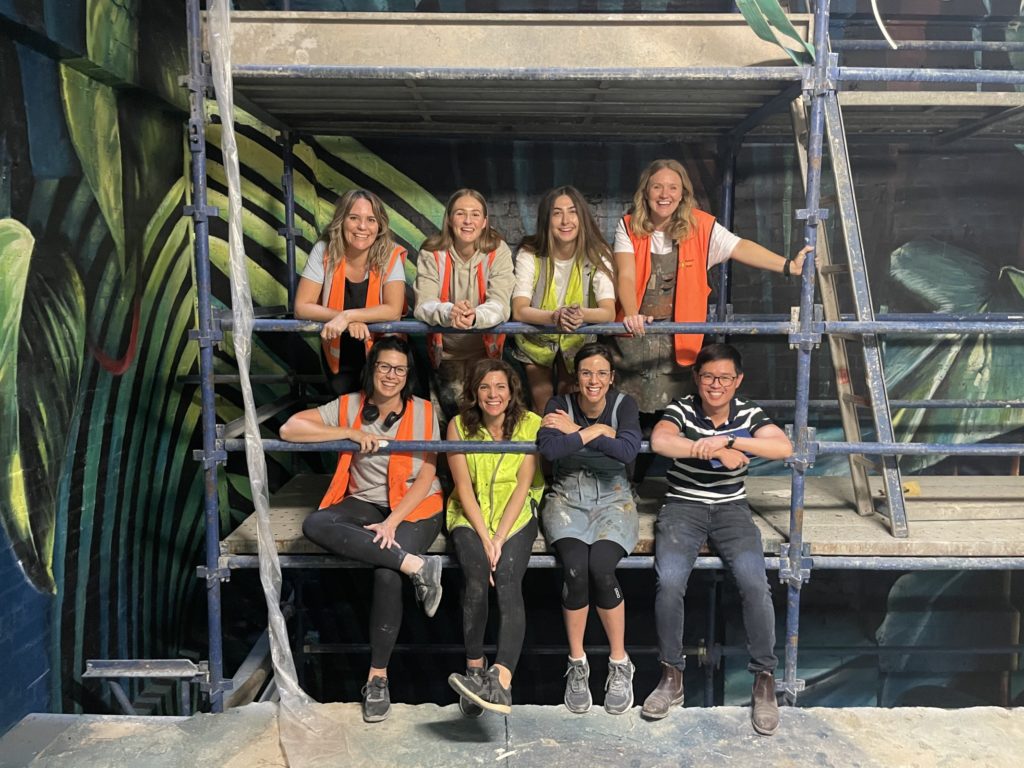
Nicolas (bottom right) with artist Jessica Le Clerc and her team of painters, creating the wall murals throughout the hotel
Q&A with Nicolas Chen
Kylie: You’ve come from an entrepreneurial family, you’re a lawyer and now you’re a hotelier.
Nicolas: The story of how we ended up being in hotels is reasonably unorthodox. After I was born in Melbourne, my family moved overseas – my grandfather’s family was involved in shipping and other businesses internationally. We lived in Singapore and Bahrain, and came back to Australia for my education starting in Kindergarten. As a 16 or 17 year old, I didn’t really know what I wanted to do. So, I turned to the reasonably safe study option of law at UNSW. The next step on that path was to go and work in a law firm, keep working then step up to the next position.
Kylie: Is that because you’ve come from an entrepreneurial father, so obviously you could see that education and hard work pays off?
Nicolas: I think it does. It’s also a cultural aspect, but also something really important in our family. Education was always very important.
Kylie: Let’s talk about Nicolas as a young boy navigating his way around Sydney. What was that like?
Nicolas: I grew up in various pockets in Sydney. We lived in Surry Hills for a while, and Lane Cove, but Pyrmont has been our longest association. When I was still in school, my father, a property developer, saw a unique opportunity to invest in a plot of land in Pyrmont, derelict abattoir which could no longer operate as an abattoir. His plan was to develop it as a residential building. It was a punt because Pyrmont, at that time, was not residential. It was very much an industrial area. Darling Harbour was just starting to come up at that time, in the late 80s. They started to put up the expo centre and the shopping centre.
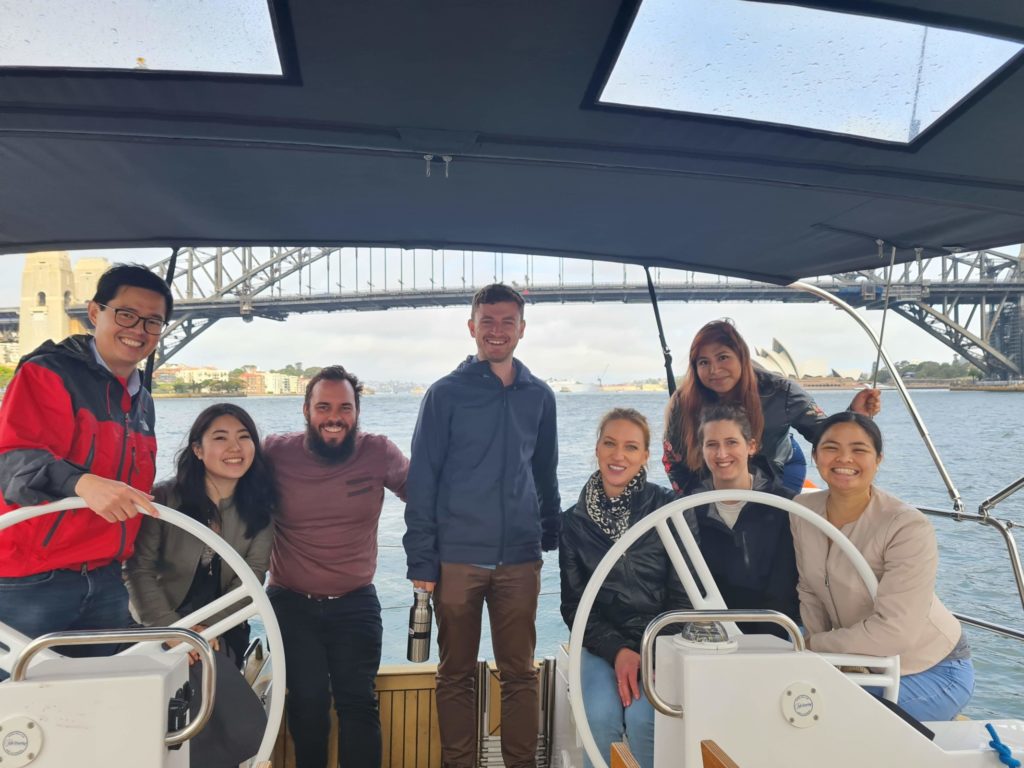
Nicolas (left) with his hotel team doing a recce of a sailing experience on the harbour with Sydney By Sail
Kylie: So how old were you at this point, Nicolas, when you were watching all this as a young man? Because this is an inspiring thread.
Nicolas: I was 11 or 12 years old.
Kylie: So, you’re watching this happen, you know, you’re in school, watching dad work hard and you can see his vision. And your dad needed a lawyer?
Nicolas: [laughs] Well, it’s the old Chinese family joke, isn’t it? You can do whatever you want as long as you are either a lawyer or a doctor.
Kylie: Or a classical musician.
Nicolas: Well, funny you should say that. The first school I went to in Singapore, Yamaha, was focused purely on classical music and piano.
Kylie: So, you became a lawyer.
Nicolas: I became a lawyer. I started out working in a small firm out in Eastwood. It was a really nice place to grow up, so to speak, which springboarded me into a position in the CBD at another firm. Law is not an easy environment to work in. You’re dealing with problems every second of every day. And the wins are a bit pyrrhic because they last four or five seconds before you have to move on to the next problem. It’s constant and law is adversarial by its nature.
Kylie: I’ve just had a vision of you working in the CBD on cases and what got you through, I could be wrong, was travel and going away to exotic places?
Nicolas: Travel was an escape. You can see where this is all heading. I worked in England for a while, in a position in Jersey in the Channel Islands, which is an extremely small island, nine miles by five miles wide. Both there and when I lived in Singapore, I travelled a lot. Travelling just 45 minutes gets you to all sorts of places from there. We went to Indonesia, Laos, Cambodia, Vietnam, Malaysia, Myanmar, France, France. Often just for a weekend. And with all that travel, I stayed in a lot of hotels.
Kylie: And now I’m lucky enough to be sitting in your dream hotel, Aiden Darling Harbour.
Nicolas: That’s right. In 2005, my father purchased this particular building. And together, along the way, we decided we wanted to take all our learnings from travelling and develop a hotel. Our plan was to offer something that was high-end but it needn’t be expensive. We realised one way we could provide really good value was to make the rooms a little bit more compact but to not skimp on any quality or attention to detail. When we started designing this hotel, more than three years ago, in this beautiful 1930s Art Deco building, which used to be an office block, it was the Breville Building for a long time…
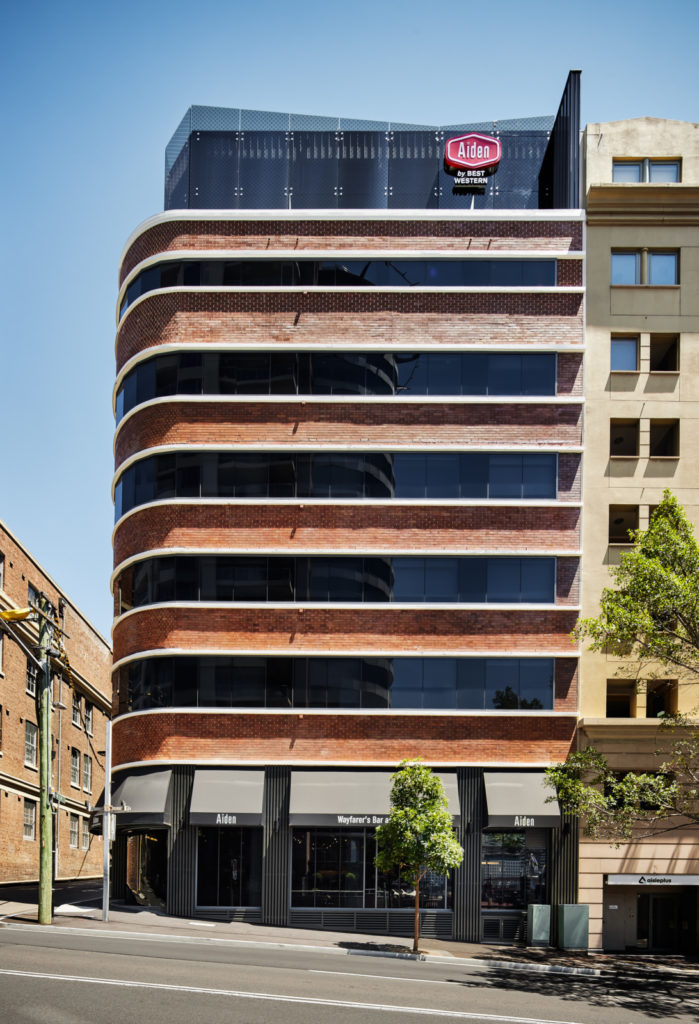
Kylie: Breville as in sandwich makers?
Nicolas: Yes, as in sandwich makers, kettles, jaffles, bread makers. So when we were undertaking the design of this building we wanted to make sure that everything was well thought out, multifunctional. Especially because the rooms are small and compact. So there is a desk there if you want to use it, but I know people will use the bed, so we want to make sure that the bed is super comfortable. There is superfast, free WIFI. You know, it’s giving you all the important stuff. When you stay in all the big cities of the world like Paris, Hong Kong, London, Tokyo, space is at a premium and a lot of hotels have very small rooms, but they just do it so, so well. You know, everything has been thought about. If there is something in this room, there’s a reason behind it.
Kylie: And that’s why you’ve called your hotel “the travellers’ hotel for the traveller”.
Nicolas: That’s right: “by travellers for travellers”.
Kylie: What better way or what better person to design a hotel than somebody who travels. And what a great neighbourhood. The best part about it is when I walk out the door, I can still be in the city in five minutes. It is definitely, I’d say, the Brooklyn side [of Sydney].
Nicolas: I completely agree. Inspirationally speaking, the way I see Pyrmont is that it’s the Brooklyn equivalent of New York – or the Brooklyn equivalent of Manhattan – it’s the Williamsburg equivalent of Manhattan. Manhattan has all the shiny buildings and the tall buildings. But just cross the bridge and you are there in a village with the small sandstone houses with the small shops with small businesses that craft a particular item that, you know. It’s stuff you want to explore. If you want the big city vibes, yes of course, cross the bridge. But I think the nicest thing about Pyrmont is the fact that it’s a village, it’s really local, there’s a really nice community around here and there’s a lot to explore.
Kylie: So is this your job now?
Nicolas: It is my job now, it is. It’s my job and my passion.
Kylie: You’ve managed to wrap them together.
Nicolas: I have. And it only took me 20 years to get here. But you have to run that gauntlet of – not to be masochistic – but you kind of have to see the hard parts of life in order to appreciate where you want to be.


